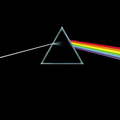Physicist (nonfiction): Difference between revisions
No edit summary |
|||
| Line 1: | Line 1: | ||
A '''physicist''' is a scientist who studies the interactions of matter and energy across the physical universe. | |||
Physicists study a wide range of phenomena in many branches of their field, spanning all length scales: from sub-atomic particles of which all ordinary matter is made (particle physics), to molecular length scales of chemical and biological interest, to cosmological length scales encompassing the Universe as a whole. | Physicists study a wide range of phenomena in many branches of their field, spanning all length scales: from sub-atomic particles of which all ordinary matter is made (particle physics), to molecular length scales of chemical and biological interest, to cosmological length scales encompassing the Universe as a whole. | ||
Revision as of 15:31, 24 October 2016
A physicist is a scientist who studies the interactions of matter and energy across the physical universe.
Physicists study a wide range of phenomena in many branches of their field, spanning all length scales: from sub-atomic particles of which all ordinary matter is made (particle physics), to molecular length scales of chemical and biological interest, to cosmological length scales encompassing the Universe as a whole.
Physicists generally are interested in the root or ultimate causes of phenomena, and usually frame their understanding in mathematical terms.
The term "physicist" was coined by William Whewell in his 1840 book The Philosophy of the Inductive Sciences.
In the News
The Joker imprisons, tortures famed physicist Galileo Galilei. Church authorities say they are "powerless to intervene".
Fiction cross-reference
Nonfiction cross-reference
External links:
- Physicist @ Wikipedia

